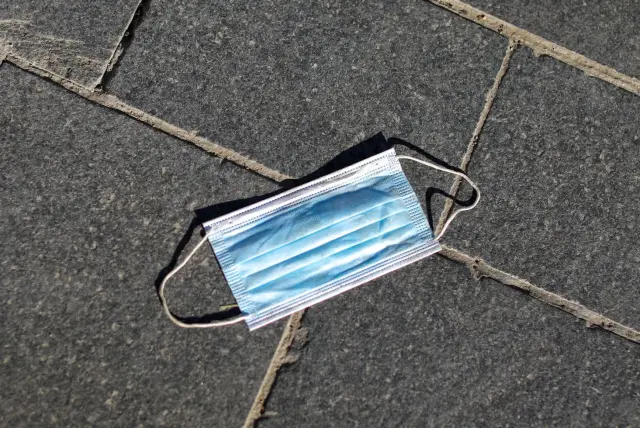To Mask Or Not To Mask?
May 2, 2022
On Wednesday, March 2nd, 2022, students walked into school and saw that something was drastically different. The previous day, Governor John Carney terminated the mask mandate for schools in the state of Delaware. Wilmington Friends School decided to follow this updated timeline. Starting that Wednesday, many students decided to take off their masks. This was a big change, as mask-wearing had been strictly enforced at WFS since September 2020. On the day masks were no longer required, Rebecca Zug, Head of Upper School, sent an email to all of the upper schoolers, reminding them that it was “very important that everyone respect the decisions of others regarding masking. Everyone must feel comfortable making the choice that is best for them.”
“Well, I’m over it. I don’t wear a mask. They make you get more nasally and nasty,” Maddie Miller, a tenth grader at Friends. Some students at the school feel as though it’s time for COVID to be over and were extremely elated when the mask mandate was lifted. But for others, it’s the opposite. Some people are still cautious about COVID, such as Gracie Gaskell ‘24. When the mandate was lifted, she said that “It felt weird. I think it was a bit early. I still wear a mask because my family is at high risk.”
Greer Marvel ‘23 thought that “The mask lift was shocking at first,” but when she saw that cases were not going up, she “then saw it as a good stride towards normalcy.” Liam Sullivan ‘24 expressed the same opinion, saying, “It’s fine as long as the numbers stay down. If the numbers go back up we need to be ready to go back to masking.” As always there are contrasting opinions; Miller remarked that even if cases rise that she, “think[s] it should keep being optional.”
From an educational perspective, Brady Bulk, Upper School French teacher and Head of the Language Department, found the end of the mask mandate to be very beneficial. “Friends uses an immersion teaching method to teach languages. I have to rely on my face and my students’ faces to communicate messages and help with pronunciation. The masks prevented that.” Others agreed with this, including Sullivan, who expressed that “I guess it makes French easier because I can understand the pronunciation.”
Miller talked about how special it was to be able to see her baby niece without wearing a mask, as “It’s easier for her to learn the language; she’s learned much faster being able to see our faces.” From another social perspective, Marvel talked about how different it was to socialize without masks, stating, “I can see entire faces. It really improves connection.” Students were so used to only seeing half of people’s faces because that was the norm for a year and a half. Bulk mentioned, “There are so many people I don’t recognize. I have to adjust how I recognize people now. I’m glad that people aren’t required to be covered up.”
When the mask mandate was lifted, one of the school’s worries was that there would be a clear divide between those who chose to continue wearing masks and those who took them off. Gaskell stated, “The majority of my friends don’t wear masks, but I trust their judgments. They respect me and want to make me feel comfortable.” She also clarified that there is a difference between people who don’t wear masks and people who don’t take precautions. “I believe that there is a divide between people who take restrictions and those who have a complete disregard for covid being a real and scary thing. There’s not a divide between the maskers and the non-maskers but there is between people’s ideologies and manners.”
No matter their political opinion, their decision whether to wear a mask, or their position in the school, every interviewee felt as though their decision was respected and that they were valued.































